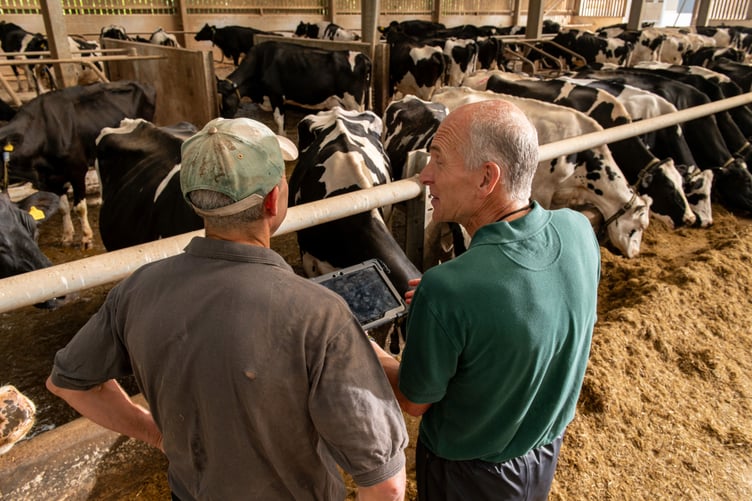A PILOT project in Wales is leveraging AI to enhance livestock disease surveillance, aiming to reduce antibiotic resistance and improve animal health.
Dedicated to reducing antibiotic resistance in animals and the environment, the award-winning Practice Syndromic Surveillance Project (PSSP) programme is a collaboration between the University of Liverpool, the Wales Veterinary Science Centre, and the veterinary delivery partner, Iechyd Da. It builds on an earlier Arwain DGC pilot.
The syndromic surveillance system uses the university’s FAVSNET (Farm Animal Veterinary Surveillance Network) programme to collect disease symptom and antibiotic use data in near real-time from a trial network of veterinary practices across Wales.
Early detection reduces the impact of disease outbreaks, helps prevent their spread to other animals, and reduces the need for antibiotic use. This, in turn, helps protect animal welfare, public health, and the economy and contributes to the ‘One Health’ approach to human, animal, plant and environmental well-being.
For the PSSP pilot study, five syndromes affecting farm animals were chosen: abortion, joint ill, mastitis, pneumonia and lameness. In total, 32,799 consultations were collected between February 1, 2024, and January 31, 2025, mostly from cattle (19,224, 58.6 per cent) and sheep (12,356, 37.7 per cent).
The pilot results have been very encouraging, and the technology allows the link between antibiotic use and specific disease syndromes to be explored.
Iechyd Da vet Robert Smith said: “By increasing the amount of data that we collect and refining the AI analysis techniques, we hope to improve the standard of disease surveillance we are achieving, with the ultimate aim of creating a system that can be used to identify priority diseases and strengthen disease surveillance across Wales.
"Reduced disease incidence and targeted prevention will then contribute to the reduction in reliance on antibiotics and other antimicrobials and slow the development of antimicrobial resistance."





Comments
This article has no comments yet. Be the first to leave a comment.